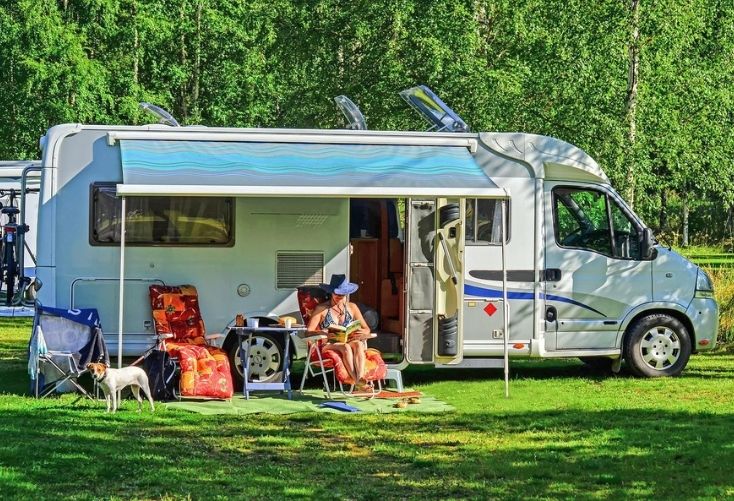- Who are digital nomads? What age are they, what work do they do, and how much do they actually travel?
- There is a prevailing view that digital nomads are freelancers of a certain age, but the COVID-19 pandemic has triggered massive change in this dynamic.
- Andy Stofferis explores some of the main groups of digital nomads, showing that this lifestyle is open to anyone who wants to break free of the traditional workplace.
There are many stereotypes and assumptions about digital nomads. For example, many people assume that they’re 20-something freelancers who backpack around the world.
Not many picture a family of digital nomads, or even an entrepreneurial CEO over the age of 50 coworking in different cities.
So, who are digital nomads, really? What age are they, what work do they do, and how much do they actually travel?
According to one recent study by MBO Partners about digital nomad demographics, 21% of digital nomads are Gen Z, 44% are Millennials, 23% are Gen X, and 12% are Baby Boomers. Overall, digital nomads tend to be younger with 29% aged 45 or older and just 11% aged 60 or older. The average age of digital nomads is 32 years.
And while there seems to be a prevailing view of digital nomads as being freelancers, the COVID-19 pandemic has unleashed a massive change in this dynamic. Now more people in traditional jobs are turning to digital nomadism, compared with freelancers and independent contractors. 
Some nomads travel the globe to many countries each year, others prefer ‘slowmadism’ and may stay in one place for several years. And others may travel within one country while never crossing a border. Some do regular workations, but spend most of the year in one location.
And in terms of job roles, these are also as varied as the demographics of nomads.
Many work in the IT sector, while there are others working in creative sectors, education, consulting, research, marketing, and finance. Many are also entrepreneurs, having started their own companies and working around the world. These are all professions and sectors that have jobs that can be performed online from anywhere in the world.
Below we look at 4 different snapshots of people or families living the digital nomad life – to show how varied it can be – both in terms of lifestyle and in terms of demographics. And we look at 3 successful nomads who provide inspiration to many on how to get started and make it work as a digital nomad.

A snapshot of some digital nomads around the world
To show the variety of ages and lifestyles that digital nomads are adopting around the world, we look at four very different nomadic people and lifestyles below.
1. A family of digital nomads: Janelle Schroy and Adventure Family Journal
If you ever thought that digital nomadism wasn’t possible as a way of life with children, then Janelle Schroy and her family will be able to show you otherwise. Travelling the world across 50 countries with their four children during the course of five years, Janelle and Jed both work as digital nomads.
Janelle uses her skills in film producing and travel journalism to curate content for their ‘Adventure Family Journal’ YouTube channel and blog, which shows people how to travel around the globe with young children being homeschooled. The YouTube channel is both a source of inspiration and tips, and a guide for others keen to follow in their footsteps.
Some of the countries they’ve travelled to include Guatemala, Ecuador, Peru, Brazil, Kenya, South Africa, India, Thailand, Cambodia, Indonesia, the Philippines, Japan, France, the Netherlands, Germany, Switzerland, Italy, Croatia, Bosnia & Herzegovina, Montenegro, Greece, Ireland, Scotland, England and the USA.
2. The Gen Z digital nomad
Heath and Alyssa Padgett are a digital nomad couple who are travellers, entrepreneurs and bloggers. A few days after their wedding, they set off in an RV to start travelling around all 50 states in the USA.
They then began a mobile business and launched the ‘RV Entrepreneur Podcast’. Since then they’ve produced a documentary about their lifestyle, hosted the first RV Entrepreneur Summit, published a book about travelling and working in an RV, and have also started a family on the road.
3. The Millennial digital nomad
Kim Orlesky has written a book called “How to Be a Nomad: Go from Business Suit to World Backpacker”, all about her experience as a woman in her 30’s who decided to adopt a digital nomad life.
Feeling tired of the regular 9 to 5 working lifestyle, she read a book about travelling the world for the first time, and a few weeks later embarked on a life-changing adventure.
Selling her house, quitting her job and saying farewell to her lover, she set off with just a backpack and an idea.
Since then, she founded the KO Advantage Group and helps people with virtual selling and digital transformation – which are important skills for digital nomads.
4. Baby Boomer digital nomad
Palle Bo is an example of someone who transitioned to digital nomadism in his 50s. When his children were grown up and left home, he decided to sell his house and furniture and start travelling full-time to most countries in the world.
As a radio producer from Denmark, he also started Radioguru – a production and consulting company which he runs while working remotely. His Radio Vagabond podcast is the perfect destination for anyone looking for armchair travel that’s inspiring and witty. You can follow him around the world over the course of five and a half years, travelling to 97 countries and 48 US states.
Inspirational Digital Nomads
If you’re needing some inspiration about living the vagabond life of digital nomadism, then here are a few people who have made the transition very successfully.

Nikki and Jason Wynn
On a grand mission to cultivate curiosity, Nikki and Jason Wynn travel the world and inspire others to become digital nomads. Through their website and blog called Gone with the Wynns, they provide insightful tips and stories about their adventures.
In 2011, when they were 28 years old, they gave up their traditional office-based jobs as a photographer and makeup artist and sold their belongings to travel and work along the way.
Fuelled by a desire for perpetual travel, the Wynn’s describe themselves as not being “overly talented, smart, rich, lucky, or retired. But that doesn’t stop us from reaching far-flung destinations, having wild adventures, and managing everything that makes living aboard a moving vessel possible. We’re two ordinary people that just so happen to live an extraordinary life. We have zero shame in admitting we want to squeeze as much out of life as possible. For us, life is an adventure. It’s full of extraordinary moments for anyone willing, and wanting, to go after it.”
Rolf Potts
Well known for having written a book all about independent travelling called ‘Vagabonding: An Uncommon Guide to the Art of Long-Term World Travel’, Rolf Potts is an inspiration for any aspiring writer who wants to live the life of a nomad while working from anywhere in the world.
In addition to being an accomplished writer, he has also been a reporter for many magazines and news outlets like National Geographic Traveler, New York Times Magazine and the Travel Channel – reporting from over 60 different countries.
Although he doesn’t stay in one place for very long, he does have some roots – with a family and house in Kansas. Rolf Potts also hosts regular writing classes around the world in places like Bangkok, Cairo, Pusan, New York, and Paris.
Natalie Sisson
Natalie Sisson is another successful digital nomad who started travelling in 2006 and has a ton of experience in using online business to support the nomadic lifestyle. She helps teach others how to start their own online businesses so that they can travel the world living out of a suitcase. Her business and best-selling book are called ‘The Suitcase Entrepreneur’.
According to Natalie, if you’re wondering what a lifestyle business is, then “the concept is simple: you design a business around your talents, skills and knowledge, that gives you the freedom to do all the things you want, when you want. Using online tools, technologies and sexy systems, you can work in a way that sustains the lifestyle you want – whether that’s having more time to play with your children or being able to travel the world.”
Natalie now helps to coach thousands of entrepreneurs through her online programmes and retreats so that they too can achieve personal and professional freedom.
Final thoughts on breaking free of digital nomad stereotypes
A few years ago, ‘digital nomad’ wasn’t a word that many people had heard of. Nowadays, the trend has bloomed and with the Covid-19 pandemic, the ‘great resignation’ and people looking for more meaning in their lives, many people are looking for ways to be more nomadic.
It’s inspiring to learn from experienced digital nomads about how to live the lifestyle, get tips on where to go, what to take along, how to be prepared and how to start up a successful online business.
It’s equally inspiring to learn that there isn’t one stereotypical age-group or type of nomad. There are people of all ages, from all around the globe, adopting a nomadic lifestyle whether for a few months of the year, or permanently. And there’s also a great deal of variety in the types of jobs they do, where they travel to and what types of activities they’re involved in.
We all have the freedom to choose our own path – and that’s the most inspiring thing about being a digital nomad!

















